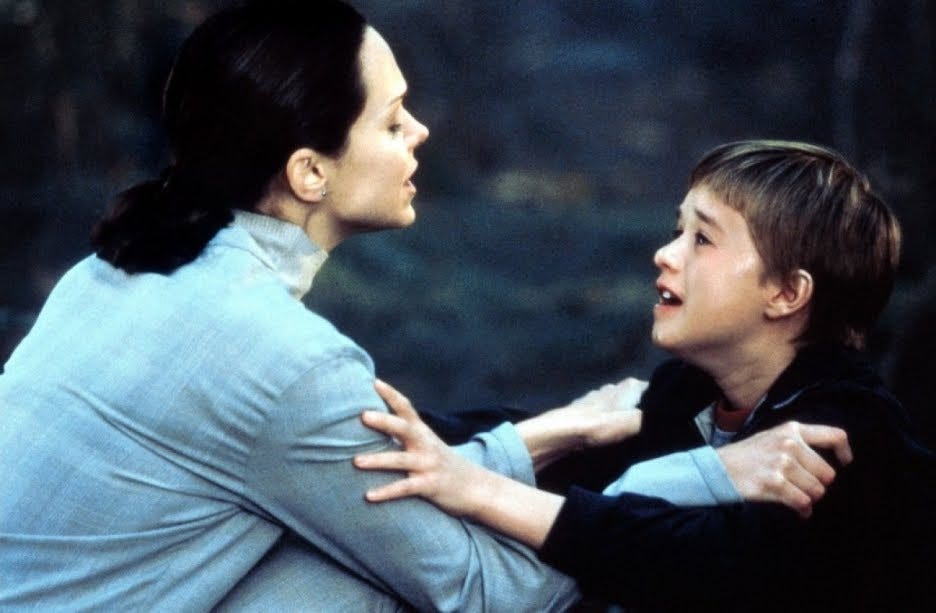Why Steven Spielberg's A.I. Leaves Me Sobbing Every Time 😭 (And It’s Not What You Think)
A Deep Dive into the Heartbreaking Truths Behind the Movie That Always Reduces Me to Tears
I have to admit, every time I watch Steven Spielberg's A.I., it reduces me to tears. It’s one of those rare films that lingers with you long after the credits roll, with its poignant blend of hope, longing, and loss. The raw emotion it evokes seems to unlock something deep inside me—something personal, almost too intimate to share.
At its core, A.I. is a story about love—specifically, the kind of love that can’t be fully returned, but is endlessly given. David, a humanoid robot created to love unconditionally, is programmed to yearn for the affection of a mother who can never truly see him as her son. And that’s where my tears begin. The very idea of unconditional love that goes unreciprocated feels so tragically human, even though David is not.
How often do we give our love, our entire selves, to someone or something we can never fully have? It’s a heartbreak we all live, but rarely confront in such a visceral way.
The scenes between David and his human mother hit particularly close. I can’t help but think about the way we navigate relationships, especially those where the love is imbalanced or unattainable. David’s endless search for his mother’s love is almost too much to bear because it mirrors a basic human instinct—the need to be loved and seen for who we are. As a mother myself, those moments resonate even deeper. It’s impossible not to think of my own children and how fragile the love between a parent and child can sometimes feel.
Then, there’s the loneliness—the deep, aching loneliness that Spielberg masterfully captures through David’s journey. The way he wanders through an indifferent world, desperately searching for a place where he belongs, is a painful reminder of our own journeys through life. How often do we, like David, find ourselves feeling out of place, searching for meaning or connection in a world that feels so vast and cold? It’s in these quiet, lonely moments that my tears come hardest—tears for David, but also tears for myself.
But perhaps what devastates me the most is the ending. That fragile, fleeting reunion between David and his mother, where time is short but love feels eternal. In those moments, it’s as if all the sorrow and longing of David’s journey is condensed into one final, bittersweet breath.
That scene—where for one day, David is given the illusion of the love he’s been chasing—is beautiful and heartbreaking in equal measure. It reminds me of all the fleeting moments of happiness we grasp at, knowing full well they are temporary. Yet we hold onto them so tightly, cherishing every second.
A.I. leaves me wrecked because it speaks to something universal: the relentless pursuit of love, acceptance, and belonging. We are all David in some way—searching, loving, and longing, even in the face of a world that may never fully return what we give. But it also reminds me to treasure those fleeting moments of connection and love, no matter how imperfect or brief they may be.
So yes, I cry every time I watch A.I.. And maybe that’s the point. It’s a film that doesn’t shy away from the raw, painful realities of love, loss, and loneliness. It asks us to confront our deepest fears—that we may love and not be loved in return, that we may search and never find. But in doing so, it also reminds us that the pursuit itself is what makes us human.
Maybe that’s why A.I. stays with me. It touches on a truth so simple yet so profound: that love, in all its flawed, unreciprocated, and painful forms, is still worth the journey. And for that, I’ll keep crying every time.
I Asked AI to Recommend Me Three Books Similar to A.I. 🤖📚
Since I’m all about exploring how AI can enhance our experiences, I thought—why not ask AI to suggest some books that capture the same emotional depth and futuristic themes as A.I.? Here are three that came highly recommended:
Do Androids Dream of Electric Sheep? by Philip K. Dick
This sci-fi classic, which inspired the movie Blade Runner, explores similar themes of artificial intelligence, human emotions, and what it truly means to be alive. The story follows Rick Deckard, a bounty hunter who "retires" rogue androids, raising thought-provoking questions about empathy, identity, and the nature of existence.Never Let Me Go by Kazuo Ishiguro
This haunting novel offers a deeply emotional exploration of identity, love, and what it means to be human—much like A.I. Set in a dystopian world where children at an English boarding school discover their disturbing purpose in life, this book is beautifully written and guaranteed to tug at your heartstrings.Machines Like Me by Ian McEwan
In an alternate 1980s London, artificial intelligence has advanced far beyond our reality. Machines Like Me tells the story of Charlie, who purchases an AI robot named Adam, only to discover that relationships—both human and robotic—are far more complicated than they seem. The novel dives into moral dilemmas and the blurring lines between humans and machines.








